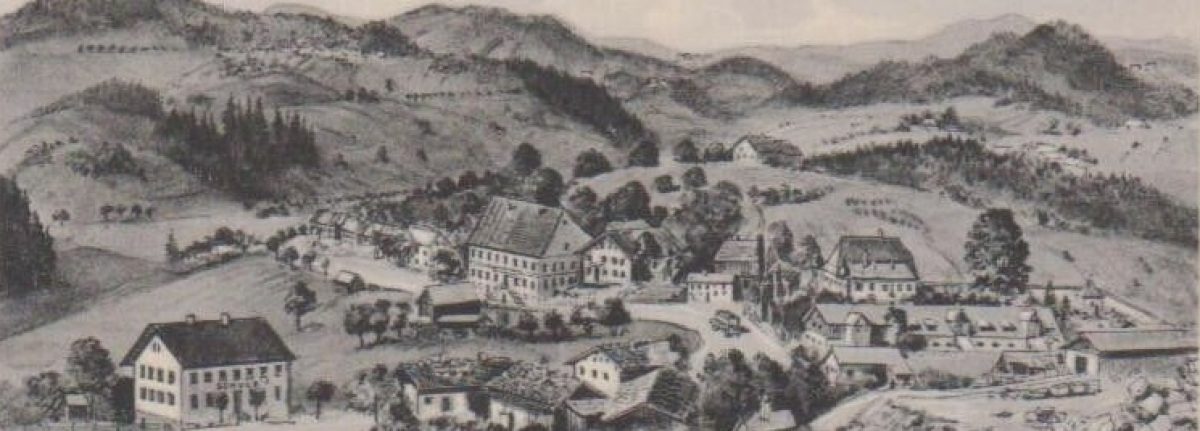A peasant’s meager meal
The satisfaction of the people with their, from our point of view, so meager living conditions at that time may not only have contributed to the fact that they did not know any other way, but also that they knew that others were no better. This is evidenced by a trip to the Hutsteiner farm in Aiglsöd near Wegscheid in the Passau district in the year 1930, published in the textbook for geography lessons in grades 12/13 of Seydlitz publisher. There the old farmer reports from his youth:
“… around 1930 the milk had to be brought to the train station in Wegscheid at 4:30 in the morning. It took an hour and a half on a steep, rocky path. Before that, however, the cows had to be milked. It got easier when you began to process and butter the milk yourself. However, everyday life remained tough enough with 15 hours of work a day. On Sundays they worked 7 hours. Every morning at 4:00 a.m. and for breakfast at 9:00 a.m. they ate gruel and bread. At lunchtime there was sauerkraut and potato dumplings with boiled smoked meat, for the afternoon snack everything what was left over from lunch and water. The supper consisted of warm or “Gestöckelter” (- sour) milk and bread. The menu only changed on Friday. There was pastry at lunchtime. At Easter, after the hay harvest and before Christmas, there were donuts. And we didn’t get an egg if we wanted it. They brought the farmer’s wife their gold …”
And the Hutsteiner farm was a farm that at that time already owned 25 hectares of land and 15 hectares of forest, i.e. a quite large one.

